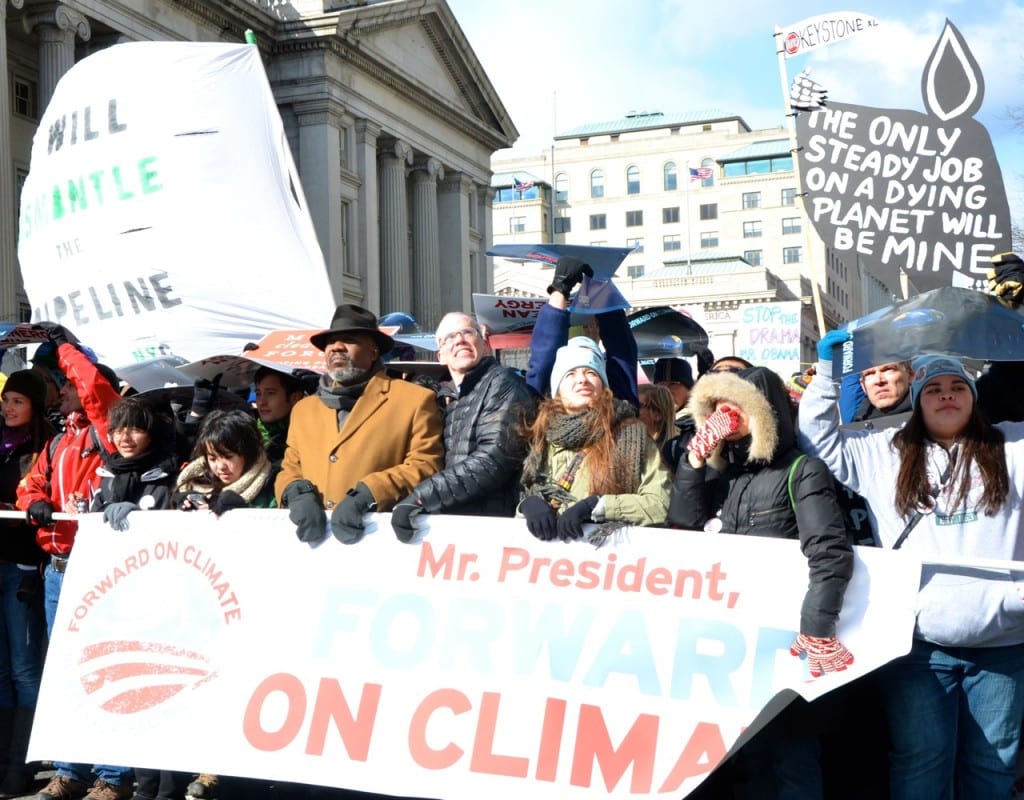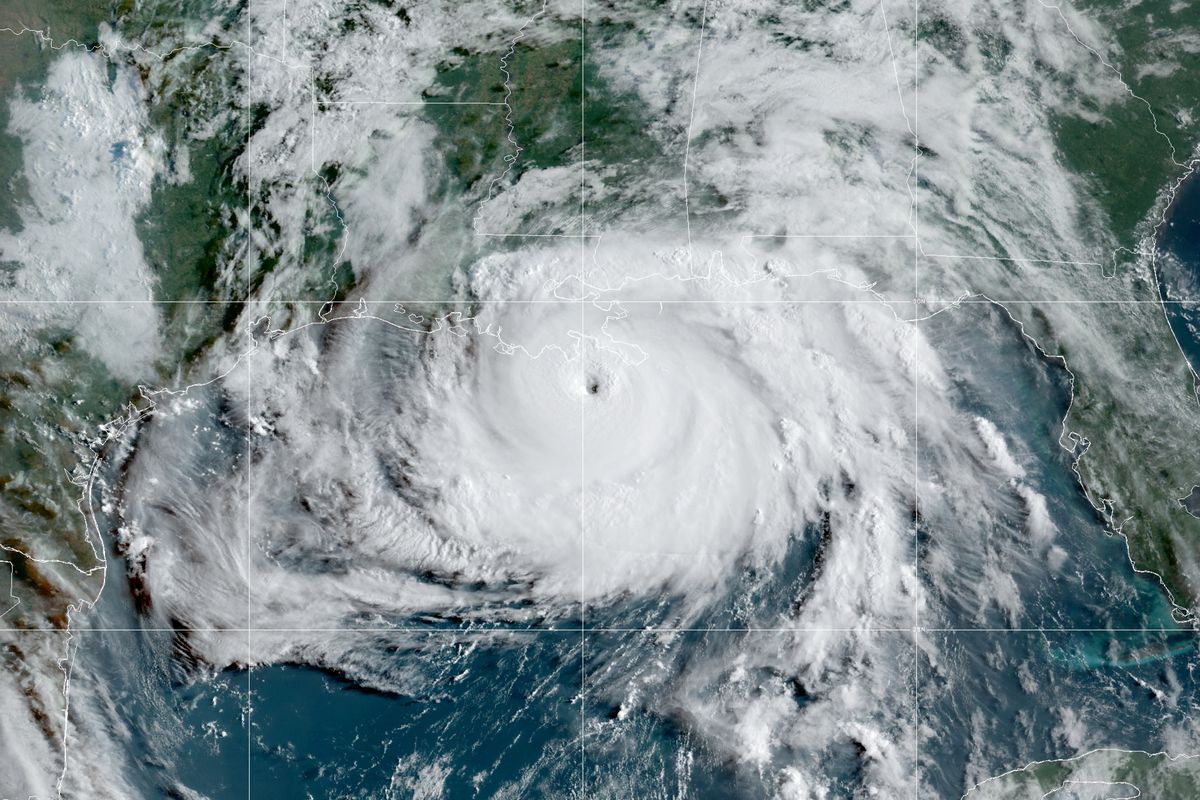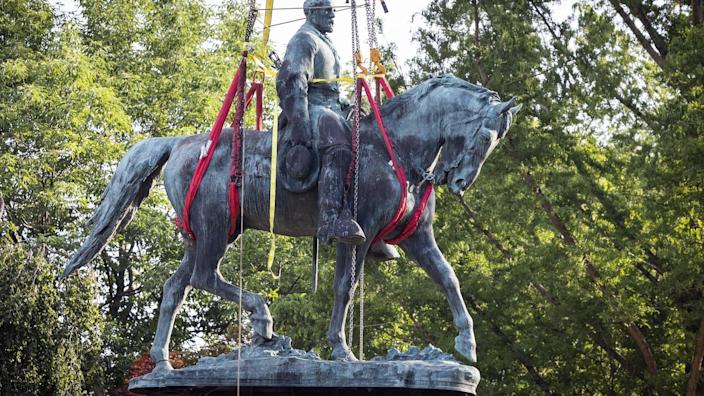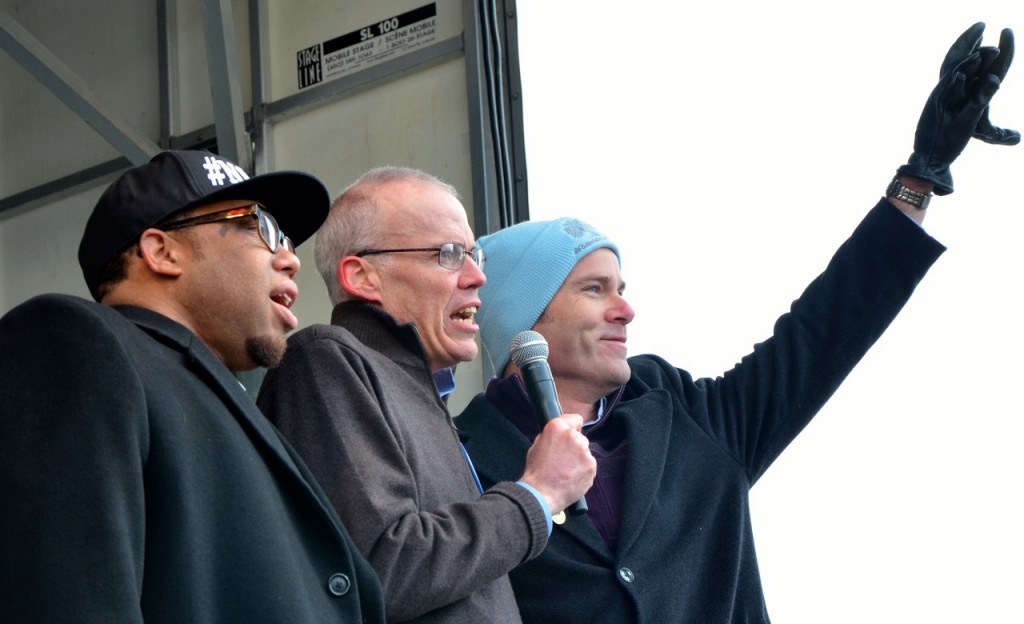Sierra Club’s Michael Brune Resigns Amid Accusations of Racism by John Muir –
By Glynn Wilson –
WASHINGTON, D.C. — Buried under the avalanche of disaster news of late — hurricanes, floods, wildfires, earthquakes, the U.S. withdrawal from Afghanistan, the Covid surge — there are a few important developments in the headlines that most news readers probably missed due to the overwhelmed and indifferent Facebook algorithm.
That problem is about to get a whole lot worse, as Facebook plans to announce that it will de-emphasize political posts and current events content in the so-called “News Feed” based on negative user feedback, which will no doubt further reduce traffic and revenue to some news publishers, according to Axios, “particularly companies that post a lot of political content.”
But since few national newspaper websites and no national broadcast TV or cable news shows covered it, you may be surprised to learn that the Sierra Club’s executive director, Michael Brune, has announced his resignation by the end of the year as the nation’s oldest non-profit environmental group goes through a historical reckoning with founder John Muir’s legacy under fire for alleged racism.
What? Really?
The web only Intercept covered it. But that news link was lost on Facebook and got almost no engagement at all, which the club might appreciate since in a slower news cycle, it could have had more of an impact on membership and fund raising.
“DURING A SUMMER of extreme heat, wildfires, and floods, the largest environmental organization in the U.S. announced … that its executive director will step down, effective at the end of the year. The resignation of Michael Brune, the head of the Sierra Club, comes amid the fallout of an internal report … that describes an organizational crisis likely to upend the Club’s volunteer-led structure,” the site reported.
“The internal reckoning around race, gender, and sexual as well as other abuse allegations coincided with a more public confrontation with the legacy of the Sierra Club’s once-revered founder John Muir, who expressed racist sentiments and traveled in circles that included eugenicists. Following the racial justice uprisings during the summer of 2020, the Sierra Club disavowed Muir. At the same time, discontent was brewing inside the organization over less symbolic issues, leading to the internal report…. prepared for the Sierra Club by the consulting firm Ramona Strategies…”
It describes a series of recommendations developed as part of a “restorative accountability process,” based on dozens of interviews and hundreds of pages of documentation.
“The sharply worded executive summary describes how the organization of nearly 900 staff members fostered a culture lacking accountability for abuse and misconduct, especially when it came from the Club’s 4,000 volunteers, some of whom act as managers for the organization’s employees. The report, which was commissioned after a volunteer leader was publicly accused of rape, underlined that employees and volunteers from historically marginalized groups were most vulnerable to abusive behavior.”
“We began that restorative accountability process to understand and examine where we failed our people so we can do better as an organization, as an employer, as an advocacy group and progressive partner,” said Ramón Cruz, the Sierra Club board president… “We have made a commitment to follow through on these changes.”
Don’t feel too sorry for the Sierra Club, however, or Michael Brune, who could not be reached for comment for this article. The group has $70.5 million in assets and Brune has been drawing down a salary of $286,154 a year, according to public records.
National Public Radio had moved an AP story about the club’s reevaluation of Muir, saying it was “calling out its founder, naturalist John Muir, for racist remarks he made more than a century ago as the influential environmental group grapples with a harmful history that perpetuated white supremacy.”
What? Really? Who knew?
Muir, who founded the club in 1892, helped spawn the environmental movement and is called the “father of our national parks.” His writing and advocacy got the attention of President Teddy Roosevelt and led to the creation of the first national park at Yellowstone, and taking over a state park at Yosemite and making it an expanded national park.
At the time the controversy came to light, Brune issued an extraordinary statement on the club’s website saying it was “time to take down some of our own monuments” as statues of Confederate officers and colonists are toppled in a reckoning with the nation’s racist history following the police killing of George Floyd in Minneapolis.
The Sierra Club is a 128-year-old organization with a complex history, “some of which has caused significant and immeasurable harm,” Brune said. “As defenders of Black life pull down Confederate monuments across the country, we must also take this moment to reexamine our past and our substantial role in perpetuating white supremacy.”
Related: Charlottesville Proves Pivotal in War on Confederate Monuments
“The most monumental figure in the Sierra Club’s past is John Muir,” Brune wrote. “Beloved by many of our members, his writings taught generations of people to see the sacredness of nature. But Muir maintained friendships with people like Henry Fairfield Osborn, who worked for both the conservation of nature and the conservation of the white race. Head of the New York Zoological Society and the board of trustees of the American Museum of Natural History, Osborn also helped found the American Eugenics Society in the years after Muir’s death.
“And Muir was not immune to the racism peddled by many in the early conservation movement. He made derogatory comments about Black people and Indigenous peoples that drew on deeply harmful racist stereotypes, though his views evolved later in his life. As the most iconic figure in Sierra Club history, Muir’s words and actions carry an especially heavy weight. They continue to hurt and alienate Indigenous people and people of color who come into contact with the Sierra Club.”
Brune’s reexamination began with John Muir—the inveterate hiker and activist who founded the Sierra Club and was famous for his eloquent tributes to the Sierra Nevada, many of which were first published in The Atlantic, according to that magazine’s story on it.
“Many within the Sierra Club applauded Brune’s statement,” the magazine reported, but certainly not everyone. Many others accused Brune of unfairly applying a “purity test” to Muir, or of “smearing a great individual via guilt by association.”
The science-fiction novelist Kim Stanley Robinson, a Sierra Club member and lifelong Sierra Nevada hiker, responded to Brune’s statement by declaring that Muir was not a racist, and that “indeed in the context of his time, he was a tolerant and generous figure, worthy of respect both then and now.”
“In a narrow sense, Robinson is right,” The Atlantic says. “Muir’s generosity toward and reverence for the members of other species was remarkable, for his time and for ours. But his failures of imagination about the human species were both significant and all too common among conservationists of his time. And as Brune noted, their influence persists, and the resulting pessimism about humans’ capacity to contribute to conservation undermines the work of the Sierra Club and like-minded organizations worldwide. In reexamining the limitations of its icons, the conservation movement has a chance to broaden its own vision.”
Why is this such big news for us?

Bill McKibben at the front of the march, with Sierra Club president Michael Brune behind him [click on the image for a larger view … more photos below]: Glynn Wilson
Back in 2014, when we first changed our name from The Locust Fork News-Journal to the New American Journal and launched the new site from Washington, D.C., we were actually sponsored by the state branch of the Sierra Club in Alabama, along with unions including the AFL-CIO and trial lawyers.
I was actually in the tent by the Washington Monument with Michael Brune and Bill McKibben on that cold February day when the largest gathering of activists to date marched from the National Mall to the White House to bring pressure on the Obama administration to do more to fight climate change, which in fact had an impact on the policies of the administration and made a difference at the time.
Related: About 35,000 March on Washington for Action on Climate Change
At our behest, the club had taken a rare, courageous stand against fracking in the Talladega National Forest and stopped that in its tracks, the only case of its kind in the country.
Related: Sierra Club Asks U.S. Forest Service to Withdraw Oil and Gas Lease Sale in Talladega National Forest
I had also been in Washington for the Blue Green Alliance conference with Brune and a number of union leaders covering a story that was ignored by virtually every major news outlet in the country.
It looked like it might be possible to build a coalition of environmentalists, unions and trial lawyers to bring about positive change in the politics of deep red Alabama. But it was not to be.
Rather than establishing a dialogue to bring pressure to bear on the Republican dominance in the state, some unions decided to play politics on the side of coal companies and power companies and went on the attack against the Sierra Club, destroying any chance of helping us to build a better media system in the state as well.
Related: Alabama Political Future Damaged by Labor vs. Environment Split
So that’s when I went out and purchased a media camper van and started planning to move out of the state to Washington full time, and made a plan to get my mom in Birmingham moved to a retirement community and put the house on the market.
Then Alabama had one more chance to begin to change, when Birmingham attorney Doug Jones decided to run for the U.S. Senate seat vacated by Jeff Sessions when he was appointed attorney general by the new president, Donald Trump.
Related: Game Changer: Birmingham Attorney Doug Jones Qualifies to Run for US Senate
Jones won the special election in 2017 over religious extremist and the pedophile former judge Roy Moore with the help of some unions and environmentalists, although most rank and file union members voted for Trump in 2016 and Tommy Tuberville in 2020 and that movement came to a screeching halt.
So with the new Alabama Democratic Party looking incredibly weak, environmental groups mostly ineffective and invisible, and union movements failing at the Amazon warehouse in Bessemer and the Mercedes plant in Vance, I don’t know what the future holds for my native state.
At least the Democrats around the country rallied altruistically in 2020 and stopped Trump from winning reelection. That was something.
But we’ve lost 20 years in the fight to stop climate change from ravaging the planet due to conservative politics and misinformation. It may be too late to do anything but document the inevitable disasters as they ravage cities like New Orleans, island countries like Haiti, and burn down the forests of California.
If people are not going to rise up and do more about it, and just sit back and accept the crazy, stupid bullshit that passes for news on Facebook, the human species may be doomed on planet Earth.
People seem paralyzed by all the existential threats. We get it.
Oh well. At least we can say we tried.

















While this is a pretty good article, it omits reference to two of the more important pieces in the dialog:
Who was John Muir, Really? by Aaron Mair, Chad Hanson, and Mary Ann Nelson (Earth Island Journal, August 11, 2021). (two black members of the Sierra Club board of directors who take issue with the majority’s treatment of Muir)
and
‘It’s just wrong’: Internal fight over Sierra Club founder’s racial legacy roils organization An internal battle over the allegedly racist views of the Sierra Club’s founder erupted in public view.
(Politico, August 11, 2021, updated August 16, 2021)
For more details on the issue of Muir and Native Americans, see: http://johnmuir.org/native-americans/
Thanks for these article links. I knew there was more to the story and plan to write more about it in the future. John Muir was too important a figure to totally dismiss out of hand.
It’s one thing to topple monuments to Confederate traitors put up long after the Lost Cause was lost. Repudiating Revolutionary figures like Thomas Jefferson and conservation pioneers like John Muir strikes me as a historical tragedy.
But the Sierra Club has other problems. I thought Michael Brune was doing a good job standing up to more conservative elements in the club, and bringing in ideas from unions and civil rights activists. Some criticized him for it and urged him to “stay in our lane” of environmental conservation.
What I saw in working directly with the Sierra Club for a few years was too powerful a presence by conservative Republicans on the board who wanted the club to remain largely invisible and not get directly involved in environmental battles. I was criticized for allegedly being “too confrontational,” when my watchdog journalism worked to stop fracking, for example.
After that, the club went back to being an invisible social club with no political clout, simply doling out its money to other environmental groups which simply used it to pay professional salaries of others who were too afraid to challenge the status quo and get involved in political fights.
John Muir believed in fighting dams on rivers, and did not hide from political battles. It remains to be seen whether the Sierra Club will have much of a role in leading the environmental movement going forward. Playing it safe may keep a little money in the bank, but it’s not going to save the planet and keep it livable for humans going forward. And it’s certainly not going to save democracy.
This is a war and no one is safe. Either the Sierra Club joins us in these battles, or it will be become irrelevant.
Glynn, to clarify, when you refer to the “conservative Republicans on the board” I am assuming you are referring to the Alabama chapter, not the national organization. Certainly the national SC does not “dole out its money to other environmental groups” but I agree that some local Chapters and Groups do that. The chapters I knew in California had no Republicans – everyone was uniformly democratic or Green Party. But California is different than other states, especially the deep South. The volunteers I know in the national and chapter level all work tirelessly for environmental protection, including environmental justice; but too often the staff are the ones that want to “support other groups” instead, with the other groups being racial justice groups rather than environmental groups.We need both pure environmental groups and pure racial justice groups to work together, but each is more effective in focusing on the topics where they have expertise.
Yes, but I assume the national group and other state groups also have Republican plants on their boards, as well as outright spies there to make sure nothing comes of the work of the clubs.